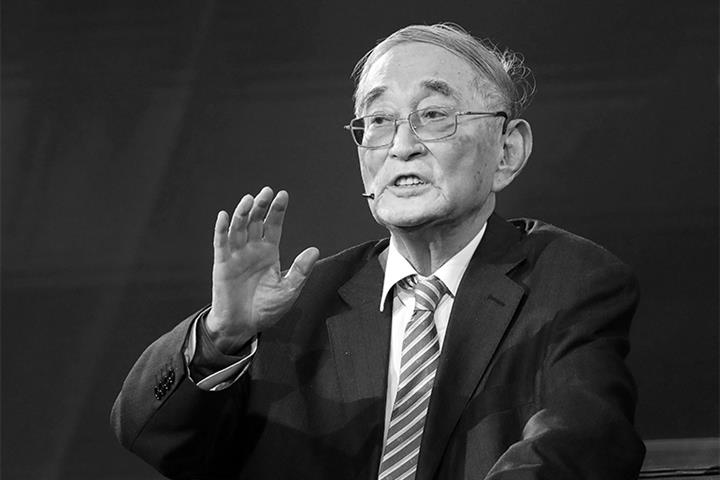 Chinese Economist Li Yining Who Advocated Market-Oriented Reforms Dies Aged 92
Chinese Economist Li Yining Who Advocated Market-Oriented Reforms Dies Aged 92(Yicai Global) Feb. 28 -- Chinese economist Li Yining, who is credited with laying the theoretical foundation that led to major economic reforms, such as the establishment of the country’s stock markets, paving the way for China’s astounding economic success, passed away at the age of 92 yesterday, his alma mater Peking University said.
Nicknamed ‘Mr. Stock Market,’ Li believed that ownership reform, where market entities can operate independently and are responsible for their own profits and losses, could drive economic development. He proposed the economic theory of ‘disequilibrium,’ which refers to the imbalance formed by an imperfect market and non-sensitive pricing system.
Li, who rose to the dizzying heights of deputy director of both the Financial and Economic Committee and Legal Committee of the National People’s Congress of China as well as the deputy director of the Economic Committee of the National Committee of the Chinese People’s Political Consultative Conference, upheld the government’s leading role in the establishment of order in the socialist commodity economy.
His book, Chinese Economy in Disequilibrium, was first published in 1990 and went on to be reprinted multiple times over the following decades. It has since been inducted into “the top 10 books that have influenced the reform of China’s economic system.”
Li, who graduated from the School of Economics at Peking University in 1955 and stayed there for his entire academic career, paid close attention to the private economy and he believed that in terms of income, there should not only be primary distribution involving the market and productive forces, but also 'tertiary distribution' in the form of public welfare as determined by the government and through which the challenge of income distribution could be resolved.
He advocated agricultural reform in four main aspects, namely determining land ownership and land-use rights, supporting rural finance as well as small-town finance to help farmers get an income, moving towards large-scale farming and achieving a balanced allocation of educational resources.
Editor: Kim Taylor